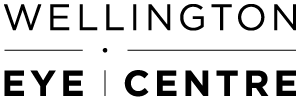Why laser eye surgery is unsuitable for older patients
Until now, if you’re 40 years or older, laser eye surgery might not have been for you, thanks to the development of a condition called presbyopia as you age.
Presbyopia affects your near vision, which gets steadily worse up to the age of 60, and results in the use of reading glasses.
Although laser eye surgery for people over 40 results in better distance vision without glasses, there is still an increased need for reading glasses, reducing some of the benefit of laser eye surgery.
Traditional laser eye surgery technology
Most current laser eye surgery systems offer a procedure called monovision, which reduces your need for reading glasses. It leaves one eye short sighted so that it sees better near than far away
Monovision is a compromise because it isn’t possible to give both good near and distance vision in both eyes at the same time. It results in an intermediate blur zone where focus is fuzzy in both eyes and close vision may also be less than ideal. This makes it difficult for the brain to fuse the two images together and can cause poor vision results.
The revolutionary laser blended vision
To overcome traditional monovision limitations, Carl Zeiss Meditec has developed a very sophisticated procedure known as laser blended vision.
In laser blended vision, laser eye surgery is used to correct the dominant eye mainly for distance vision and the non-dominant eye mainly for near vision, while also increasing each eye’s range of focus. As a result, the brain merges the two images, creating a blend zone which is in focus for both eyes, rather than a blur zone. This allows you to see at near, intermediate and far without glasses. Because the eyes are able to work together at all distances, it’s much better tolerated than traditional monovision.
The laser blended vision procedure uses LASIK treatment, which is proven to be just as safe as traditional LASIK. It is performed on both eyes simultaneously, which takes 20-30 minutes. Visual recovery is quick and there is very little pain afterwards.
Who is suitable for laser blended vision?
Laser blended vision is suitable for all patients who need, or are expected to need, reading glasses, including most short and long-sighted people.
Laser blended vision results
Vision results for the over 40s are excellent. Distance vision results after laser blended vision are comparable to the results with normal LASIK surgery. In near vision results, 99% of short-sighted patients, 94% of long-sighted patients and 99% of reading glasses-only patients could read newsprint without glasses. 96% of short-sighted patients, 81% of long-sighted patients and 95% of reading glasses patients were able to read very small print.
